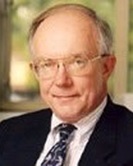Introduction to Operations and Finance – ClearTax

This Course digs into two of the most crucial aspects of business – the processes that support production and delivery of a good or service, and the financial acumen required to keep the operation running. The topics in this Course include process analysis, financial basics, and the interaction between standard business reports such as the balance sheet, the income statement, and the statement of cash flows, and the major activities every business pursues.
Faculty

Prof. Kumar Rajaram
Professor
Kumar Rajaram is a Professor of Operations and Technology Management at the UCLA Anderson School of Management. Professor Rajaram’s current research interests include improving operations in the health care industry, non-profit sector and in the process manufacturing sectors including food processing, pharmaceuticals and the petrochemical industry. He has focused on developing analytical models of complicated systems with a strong emphasis on practical implementation. His work has been published in leading research journals such as Operations Research, Management Science, Manufacturing and Service Operations Management, Marketing Science and the European Journal of Operational Research. He has been awarded the Eric and ‘E’ Juline Faculty Excellence in Research Award at the UCLA Anderson School.
Professor Rajaram has developed a new control paradigm called “Robust Process Control” to increase the productivity of large-scale industrial processes. By focusing on the design and control of these processes in operational environments, this technique has resulted in four-fold increases in productivity in several types of industrial processes. These methods have been implemented at several process companies worldwide. This work was awarded the prestigious Franz Edelman finalist award for outstanding applications of operations research and management science techniques to practice by the Institute for Operations Research and the Management Sciences (INFORMS). He has also developed techniques to better balance supply with demand for products with short life cycles and highly unpredictable demand. This work has been applied at several large fashion retailers in Europe and North America and has resulted in substantial improvements to profitability at these sites.
At the UCLA Anderson School, Professor Rajaram teaches the MBA core course on operations and technology management, various Executive Education courses and doctoral level courses on operations management and models for operations design, planning and control. He has been awarded the George Robbins Award, the Citibank Award and the Neidorf “Decade” Award for excellence in teaching at the UCLA Anderson School.
Education
Ph.D. Operations Management, 1998, The Wharton School, University of Pennsylvania
M.A. Managerial Science and Applied Economics, 1997, The Wharton School, University of Pennsylvania
M.S. Industrial Engineering and Operations Research, 1993, University of Massachusetts at Amherst
M.Sc. Mathematics, with Honors 1991, Birla Institute of Technology and Science, Pilani, India
B.E. Electrical and Electronics Engineering, with Honors 1991, Birla Institute of Technology and Science, Pilani, India

Prof. George Geis
Professor
George T. Geis, Ph.D., is an adjunct professor of Information Systems at the UCLA Anderson School of Management. Geis teaches at UCLA Anderson in the areas of mergers & acquisitions, financial modeling, entrepreneurship, and accounting. He has been voted Outstanding Teacher of the Year at UCLA Anderson four times and has received a number of other teaching awards. Geis has also served as Associate Dean and Faculty Director of UCLA Anderson’s Executive MBA program. He is currently Faculty Director of Anderson’s Mergers and Acquisitions Executive program. Geis has also taught mergers and acquisitions at the Haas School, UC Berkeley and has been a visiting professor at Bocconi University (Milan) and at Darden School of Business (University of Virginia).
Dr. Geis is an expert on M&A activity in technology, communications and media markets. His most recent book, Digital Deals, provides a blueprint for planning and executing sound corporate business development strategies. Geis’ research interests include market modeling for M&A-related strategies as well as venture initiation and growth processes.
A National Science Foundation and Woodrow Wilson Honorary Fellow, Dr. Geis has extensive consulting experience and has published dozens of professional articles and six books. He is the recipient of the Financial Executives Institute Award for outstanding achievement in finance.
Dr. Geis taught in the LEAD Summer Institute for minority youth for more than 10 years. He has provided management education for directors of Head Start programs nationwide as well as for Iraq veterans in UCLA’s Entrepreneurs’ Bootcamp for Veterans with Disabilities. His 16- tape lecture series on “Statistical Analysis in Business” appeared as part of the Teaching Company’s Super Star Teacher series.
Geis is editor of a web site that provides a visual analysis of M&A deals in technology, media and communications markets at http://www.trivergence.com. Geis also writes an M&A blog at http://maprofessor.blogspot.com.
Geis received a B.S. “summa cum laude” and with “honors in mathematics” from Purdue University , an M.B.A. from University of California, Los Angeles, and a Ph.D. from University of Southern California.
Course Learning Objectives:
- Determine the potential bottlenecks in a business process, so you know what to target for improvement.
- Analytically compare various options for process improvement so you select the best one.
- Oversee the core business activities of finance, investing, and operations, using standard business reports to monitor your progress.
- Explain how taking a scientific approach to operations management can add value to a company’s bottom line.
- Create a process flow diagram that shows the steps in a product’s movement from idea to packaged item, ready for delivery.
- Analyze a process flow diagram to determine any bottlenecks and whether the process is technically balanced.
- Analyze data based on a business process to find the value produced by the current process.
- Calculate at least two options for reducing/eliminating a bottleneck, making a business process more profitable, given current data.
- Recommend one of the options to improve profitability, using defensible data to support your proposed solution.
- Explain what financial statements are and their purpose/s, collectively and individually.
- Demonstrate how financial statements reflect the business activities of the business venture.
- Using a set of data, build a balance sheet that represents the financial position of a business venture.
- Use a set of data to complete the liabilities and shareholders’ equity side of a balance sheet that already contains assets, fully representing the financial position of a business venture.
- Use a set of data to complete the income statement for a business venture.
- Use a set of data to complete the statement of cash flows for a business venture.
Syllabus
- Introduction to Operations Management
- Business Operations - Applications
- Finance & Accounting - Fundamental Concepts
- Financial Statements - Building Blocks
Learning Objectives:
- Explain how taking a scientific approach to operations management can add value to a company’s bottom line.
- Create a process flow diagram that shows the steps in a product’s movement from idea to packaged item, ready for delivery.
- Analyze a process flow diagram to determine any bottlenecks and whether the process is technically balanced.
Module Components:
Video Lectures:
- Operations Management Fundamentals
- Defining Process
- Operations Management – Key Definitions with Examples
Readings:
- A Primer on Operations Management
- Process Analysis
Case Study:
- Drastic Publishing (Introduction to Operations Management)
Quiz:
- Operations Management
Learning Objectives:
- Analyze data based on a business process to find the value produced by the current process.
- Calculate at least two options for reducing/eliminating a bottleneck, making a business process more profitable, given current data.
- Recommend one of the options to improve profitability, using defensible data to support your proposed solution.
Module Components:
Video Lectures:
- Analysis of Business Operations – Illustration
- Process Improvement – Illustration
- A Framework for Process Analysis
Readings:
- Analysis of Process Duration and Capacity
- Business Process Decomposition
- Operational Excellence: Key Principles and Their Implementation
Case Study:
- Drastic Publishing (Business Operations – Applications)
Quiz:
- Business Operations Applications
Learning Objectives:
- Explain what financial statements are and their purpose/s, collectively and individually.
- Demonstrate how financial statements reflect the business activities of the business venture.
- Using a set of data, build a balance sheet that represents the financial position of a business venture.
Module Components:
Video Lectures:
- Financial Statements & Communication
- Business Activities and Financial Statements
- The Balance Sheet – Assets
Readings:
- Defining Financial Statements
- Types of Financial Statements
- Limitations of Financial Statements
- Statement of Financial Position
Case Study:
- Drastic Publishing Drastic Publishing (Finance & Accounting – Fundamental Concepts)
Quiz:
- Finance & Accounting Concepts
Learning Objectives:
As a result of participating in this module, you will be able to:
- Use a set of data to complete the liabilities and shareholders’ equity side of a balance sheet that already contains assets, fully representing the financial position of a business venture.
- Use a set of data to complete the income statement for a business venture.
- Use a set of data to complete the statement of cash flows for a business venture.
Module Components:
Video Lectures:
- The Balance Sheet: Liabilities & Shareholders’ Equity
- The Income Statement
- Statement of Cash Flows
Readings:
- Retained Earnings
- Stockholders’ Equity
- Reporting Liabilities
- Income Statement and Profit & Loss Account
- Note on Cash Flow Statement
Case Study:
- Drastic Publishing (Financial Statements – Building Blocks)
Quiz:
- Financial Statements
Have questions regarding UCLA PGP PRO, Here are some of our most frequently asked questions. Please email [email protected] for any support required with respect to the program, course or platform.
